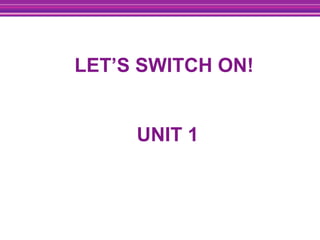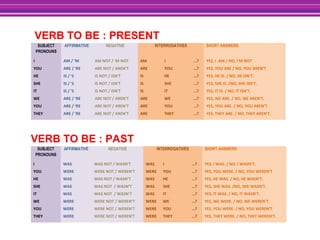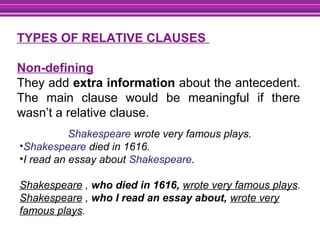The document provides tables outlining the forms of the verbs "to be" and "have got" in the present and past tenses. It includes the affirmative, negative, interrogative and short answer forms for each subject pronoun. Additional sections cover likes/dislikes using verb-ing forms, wh-words, present tenses including the present simple and present continuous, and relative clauses.
























